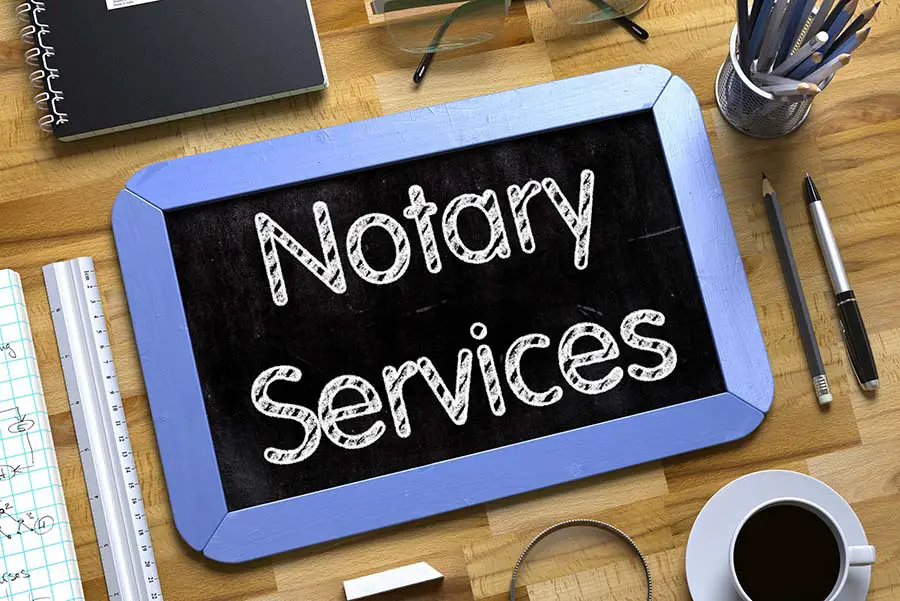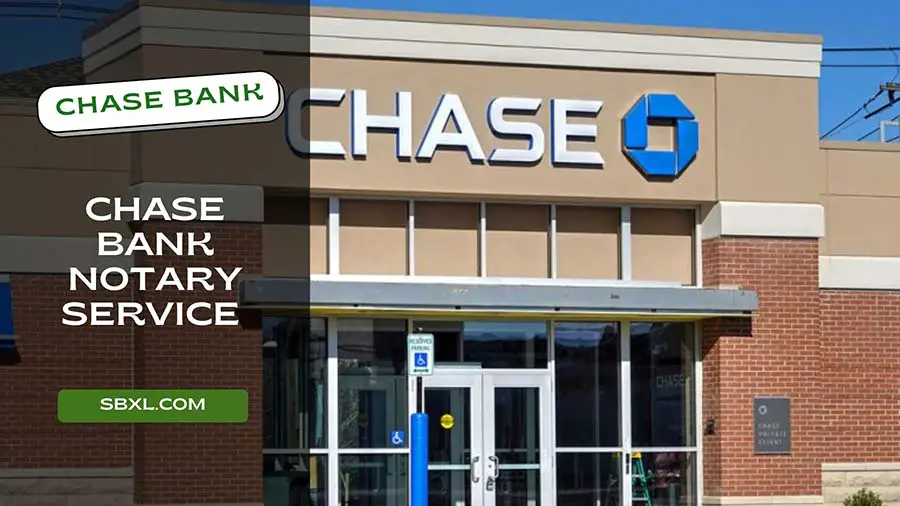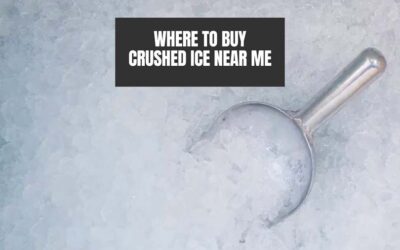Introduction Of Chase Bank Notary Services
Chase Bank notary services is one of the best offers a client could have because this service can notarize any document easily and without complications. The service is provided free of charge for any Chase account holders and done with ease. The notary services confirm the accuracy of legal documents, thus deterring any fraud.
Let us explore the Chase Bank Notary Service Near Me and see what documents, fee & hour you can notarize
What Is A Notary Service and How Does It Work?
Notary service is when people need to notarize their documents to deter fraud. The documents would be signed by a publicly commissioned official representing an impartial witness to authenticate a legal document. Usually, the documents include real estate, wills, powers of attorney, and certain types of contracts.
When you have a legal document, you will need to meet a notary public who is authorized to notarize your documents. They can verify your identity and witness the signing of the documents. Often, you are advised to go to the bank; most banks offer services with various price ranges.
However, to avoid wasting time when doing this service, let us explore one of the most popular options: the Chase bank notary services.
Does Chase Bank Offer Notary Services?
Yes.
They all have a notary public on duty in their branches. However, you have to be an account holder of Chase bank to use the service. Keep in mind not all employees are authorized to perform this service. The task is usually for bank managers or some selected staff members who are publicly commissioned to act as impartial witnesses.
Sometimes, they have notaries working at irregular hours in a week, which leads to not all Chase branches having 100% of their notaries on-site, but usually, you can check online and make schedules.
Also, Chase notaries public may not be able to notarize some documents. For example, some branches can notarize your property deeds but won’t be able to do Jurats notarization on medical authorization forms. Therefore, it’s important to call ahead to check with the branch’s notarization services and time before making a trip to the bank.
The notary program of Chase bank also allows its customers to sign documents online. You will need to send it via email. This would require their customers to be 18-year-old plus account holders at the bank and if you are sending from outside of a state bank branch, you need to be older than 21.
The notarization procedure is done via a secured portal and opens 24/7 on Chase mobile banking app. It is convenient for someone who doesn’t have a lot of documents or time to come to the bank.
See more: does usps notarize?
Find Chase Bank Notarize Services Near Me
Chase bank is a very popular and trusted banking institute that is located almost everywhere. So, you should follow these steps to plan the trip most efficiently.
- Find a location: Use the Chase bank locator here to search for an address, zip code, and city.
- Getting Contact details: after choosing a location, you should obtain your phone number, operation hours, and directions.
- Contact: call ahead to ask about the services, then make an appointment.
- Prepare before visiting: make sure to bring a government-issued ID, and required documents which you can ask a public notary at the bank when you make an appointment.
You can visit Chase.com and use the schedule here to arrange a meeting when making appointments. You also have options for phone meetings, but since this is an in-person visit and requires paperwork, you should meet in person.
How Much Does It Cost To Sign a Document With a Notary?
No fee at all.
It’s entirely free when you are already a Chase bank customer. It’s a perk for customers who use its checking, credit card, and savings and you are eligible for a free notary service at a Chase branch.
So what if you are not a customer at Chase? There was a rumor that it was also free, but people should call to ask first before making the assumption. If you are lucky to get your documents notarized for free, then it’s great, especially when you have a lot of documents for notary services.
The cost to notarize a document usually costs $7.50, specifically at UPS stores, they charge $6-$20 for the services. Therefore, it’s greatly beneficial to ask a few Chase branches whether they offer free notary services for non-customers or if they charge a small fee, then it’s still cheaper than going to the UPS stores.
What Documents Require Notary Services

Most people would want to have these documents notarized:
- Original Bills
- Legal Contracts
- Marriage Certificates
- Death Certificates
- Birth Certificates
- Other common notarized documents:
- Estate planning wills
- Property deeds in states with free land grants
- Prenuptial agreements
- Weapon permits
- Removing your name from public records
- Retirement and death benefit designations
- Promissory notes for six-figure and seven-figure transactions
- Medical Authorization for minors
- Federal government application and documents
- Direct deposit authorization forms at banks or credit unions
- Guardianship agreements
- Verify your identity after your credit card is stolen
- Bills of sale for a motor vehicle when buying a car after a free VIN check
- Certificate of ownership or title application for a car
- Advanced health directives
- Authorization to add or remove a name from a title.
- Homeschooling agreements
Another perk of Chase bank is that they offer to notarize documents digitally. Here are some documents you can sign with a bank notary digitally:
- Power of attorney
- Limited power of attorney
- Agency agreement
- Will and Testament
- Deed and mortgage agreements
- Lease agreements
- Corporate or partnership agreements
- Employment contracts, including non-compete agreements
About Chase Bank Notary Hours.
Chase bank’s open hours are from 9 am to 5 pm Monday to Friday and closed on Sunday. The hours on Saturday are varied depending on the branch, usually operated from 9 am to 1/2/4 pm or closed, so you should call to check ahead.
There is an exception if you are a Chase bank private client. The Chase Private Client branches are located in New York headquarters and open on Sundays from 9 am to 2 pm. Also, on weekdays they start earlier at 8:30 am than regular branches.
Different Types of Notarization
There are many more types of notarizing your documents, but you probably have only heard of this third-party witnessing the signing of documents because it’s the most popular one.
Acknowledgments
You might need to acknowledge notarization for a power of attorney, trust or a property deed. Then, some of those don’t require signing with a notary, but you still have to declare the documents were signed willingly.
Afterward, you can bring the signed documents to a notary, and it’s acknowledged that the signature is yours and you signed that on your own.
Copy Certification
In the case of a diploma, lease, contract, Social Security card, or driver’s license, a notary public will make a copy of yours, then they would verify it as a copy of an original. The notary services are performed to determine the accuracy of the copied documents when you don’t want to bring the originals, which might get lost somewhere.
Jurat
Jurat is a less-known notarization type. This often requires affidavits and depositions.
This act is done as you will sign a document with a notary’s presence, then take oath that those statements in the documents are correct.
The oath has legally binding, and if one falsifies it, they would be charged with perjury. This also requires proof of identity, depending on where you live.
Discover Different Notary Service Options
Customers can enjoy a free notary service from their banks. Some may charge a small fee or decline the service if you are not their customer. Like Chase bank, there are a few options to access notary services:
- Alliant Credit Union
- Bank of America
- BBVA
- BECU
- Capital One
- Citibank
- Fifth Third
- Huntington Bank
- HSBC
- KeyBank
- Navy Federal Credit Union
- PNC
- Regions Bank
- Santander Bank
- SunTrust
- TCF Bank
- TD Bank
- US Bank
- USAA
- Wells Fargo
However, if you don’t have a bank account, UPS’s public services charge $6-$20, as mentioned above.
Identify Fake or Valid Documents
Chase notary service is new, so it’s crucial to know what you’re getting into before using it. You can submit your document information on the Chase website and click on the “Submit” button. The website will generate a barcode so you can scan at their local branches.
If the document has a barcode, you will be able to go ahead and accept the notary services at any branch easily. If the document doesn’t have a barcode, then you have to send it digitally instead of physically sending them in.
In addition, there are a few tricks to spot counterfeit documents easily since it’s vastly different from the real one:
- Fake documents do not have any barcode or unique identification on them, meaning those documents aren’t verified as legitimate by Chase staff.
- Watch for fake documents sent via email. They sometimes have unusual fonts and inconsistent spacing, then which must have raised a red flag. Real documents are presented professionally and consistently.
- A notarized document is signed with special ink, which can spot from the fake one. It is typically more eligible because the ink is provided only for authorized personnel.
Final Thoughts On Chase Bank Notary Service.
First of all, if you are already a Chase bank customer, congrats, you are certain to enjoy a free notary service at the bank.
Secondly, just like other banks, Chase will charge you a small fee for notary services if you are not their account holder or sometimes decline the service depending on the branch.
Finally, if you have many documents to sign, it’s best to pick a location, set up a schedule, and bring all the required documents to the bank. Otherwise, you have a few and nonsensitive materials, so Chase bank offers online notary services too. It’s best to call the bank asking about detailed information, documents and schedules before accessing notary services from Chase bank.









0 Comments